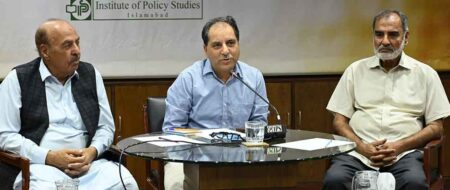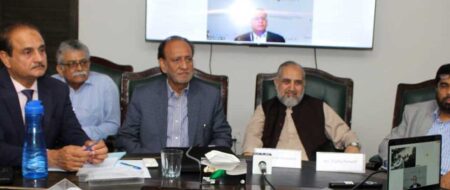Seminar on Alternative & Renewable Energy Resources: 500 MW electricity to be added to national grid during next few months
Alternative and renewable energy resources may not be an immediate solution to Pakistan’s lingering energy crisis but they seem to be a very viable option to meet future energy requirements.
Alternative and renewable energy resources may not be an immediate solution to Pakistan’s lingering energy crisis but they seem to be a very viable option to meet future energy requirements. Pakistan has abundant resources for alternate and renewable energy production but unfortunately policy makers in Pakistan could not foresee the energy spectrum and started thinking about utilization of these resources very late.
 |
These observations and concerns were shared in a seminar on 12 July 2012 held at the Institute of Policy Studies on “Alternate and Renewable Energy Resources and Pakistan’s Energy Crisis”. The eminent and relevant panel of speakers at the seminar included Chief Executive of the Alternative Energy Development Board (AEDB) Arif Alauddin, Representative of Renewable and Alternate Energy Association of Pakistan (REAP) Arif Jah and head of a leading bio-energy related firm Habib-ur-Rahman. Former Secretary Ministry of Water and Power Hamid Hasan, who is Chairman of IPS Tawanai Program was in the chair.
The seminar participants were told that at the moment Pakistan relies heavily on fossil fuels to meet its energy requirements and the nation is spending more than 11 billion dollars on import of petroleum products every year and it is estimated that by 2015 this will increase to 38 billion dollars. Apart from its very high financial cost, Pakistan remains at strategic risk because it remains heavily dependent even for its vital service.
After establishment of Alternate Energy Development Board in May 2003, Pakistan too has made considerable progress in this field. A number of projects are in the pipeline and it is hoped that 500 MW of electricity will be added to national grid during next few months. AEDB is mandated only to attract private sector investment while the government sector was meant only to regulate and facilitate the process.
 |
 |
 |
 |
 |
 |
It was recommended that the public sector should not absolve itself of responsibility to utilize these resources. “In an environment where private sector investments are hard to fetch, government should take initiative in setting up some generation plants and introducing the ideas. This will open the market and private investments will follow”, it was suggested.
The speakers highlighted that Pakistan was blessed with all sorts of resources that are being used around the world as energy inputs. They narrated the potentials available in Pakistan in the form of wind, micro-hydal, solar and bio-gas and bagasse and distinctively discussed the options as well as developments with respect to each of them.
The survey of the situation led the seminar to the conclusion that while Pakistan had developed “one of the best policies in the world” on alternate and renewable energy (ARE), there were a number of flaws on practical level that needed to be addressed immediately. The first and foremost is the realization of the potential and the will to utilize it to the maximum.
Similarly, intelligent financing tools have to be worked out and implemented because initial cost of installing solar panels, bio-gas plants or other resources is relatively higher for common citizens. Building bylaws have to be amended to make the buildings energy efficient and with mandatory provision of ARE units. Concurrently, amendment in energy related legislation has to be made so that surplus power produced by smaller units could be purchased by distribution companies (DISCOs).
Director General of the Institute of Policy Studies Khalid Rahman observed that while the government needed to improve its governance and regulation mechanism, private sector including individuals have the options to mitigate their sufferings by opting alternate and renewable energy technologies.












